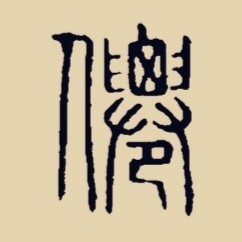How do you relate requirements and quality versus testing in a data warehouse environment.
//bow~
 cloud123
cloud123-
翻译:
一、英文:How do you relate requirements and quality versus testing in a data warehouse environment.
//bow~
二、中文:
您如何将需求和质量与数据仓库环境中的测试联系起来。
//鞠躬~

重点词汇:
How: 怎样 ; 如何多少,多么,多大。
do you :你愿意吗。
relate :联系;使有联系;把…联系起来;叙述;讲述;讲。
requirements :所需的东西 ; 必要条件 ; 必备的条件 ; requirement的复数。
quality: 质量 ; 品质 ; 上乘 ; 优质 ; 高标准 ; 人品,素质,品德 ; 优质的 ; 高质量的 ; 盖帽儿了 ; 棒极了。
versus :对,诉,对抗 ; 与…相对,与…相比。
testing: 试验 ; 测试 ; 检查 ; 棘手的 ; 伤脑筋的 ; 难应付的 ; 测验 ; 考查 ; 化验 ; 检验 ; test的现在分词。
data warehouse: 数据仓库。
environment: 环境 ; 客观环境 ; 自然环境 ; 生态环境 ; 工作平台 ; 软件包。
bow :鞠躬 ; 点头 ; 低 ; 垂 ; 弯曲 ; 弯腰行礼 ; 船头 ; 艏 ; 弓 ; 蝴蝶结。
以上内容参考 百度百科-翻译
 西柚不是西游
西柚不是西游-
(22)The cake is made quit simply.
这蛋糕做起来很简单。
(23)The teacher explained the text simply.
老师简单地解释了一下课文。
3.They also make sure that readers can relate to the stories.
他们还要确保这些报道内容和读者的生活是密切相关的。
▲make sure意为“确保”“弄清楚”,后接介词短语、不定式或从句。如:
(1)Have you made sure of the time of the train?
火车开车的时间你搞清楚了吗?
(2)He arrived at the cinema early to make sure of a seat.
为保证搞到座位,他一大早就到了电影院。
(3)I only come to make sure that everything was all right.
我只是来弄清楚是否一切都没有问题。
(4)We made sure you were not coming today.
我们确信你今天不来了。
【注】请注意make sure, be sure, for sure的区别:be sure后接不定式时,意为“一定”“必定”“准会”,若跟of或about或从句,作“肯定”“有把握”解释;to be sure作插入语时,意为“的确”“诚然”。如:
(5)Be sure to write and tell me all the news.
一定要写信告诉我所有的消息。
(6)She is sure to find out the truth tonight.
她今晚一定会把真相搞清楚。
(7)She is not pretty, to be sure, but she is very clever.
她的确不漂亮,但是她很聪明。
(8)I"m not quite sure of his telephone number.
我不大清楚他的电话号码。
▲for sure 意为“肯定地”“毫无疑问地”。如:
(9)I don"t know it for sure.
这事我不敢肯定。
(10)I don"t know for sure that he was dead.
我确实不知道他已经去世了。
▲relate to 意为“与……有关”“涉及”。如:
(11)This paragraph relates to the Second World War.
这一段是有关第二次世界大战的。
(12)She says she is related to the royal family.
她说她与皇室有亲戚关系。
(13)He has collected many proverbs and popular sayings that relate to the weather.
他收集了许多有关天气的谚语和俗语。
(14)I do not understand how the different parts of machine relate to each other.
我不明白这个机器不同部件之间的关系。
(15)He had concern for nothing except what related to himself.
他只关心有关自己的事。
▲relate to还有“与……很好相处”“适应……”之意。如:
(16)A good teacher is one who can relate to the students, not one who has a lot of information.
一个好老师是能够和学生相处融洽的人而不是博学的人。
(17)He is unable to relate to loud modern music.
他不能适应喧闹的现代音乐。
(18)Our monitor is best at relating to people.
我们班长最善于与人相处。
【注】relate的名词形式有relation和relative;前者意为“关系”“亲戚”,后者作“亲戚”“亲属”解释。如:
(19)There is a relation between smoking and lung cancer.
抽烟和肺癌有关系。
(20)We have had business relations with our neighbours.
我们和邻国有商业关系。
(21)There is some relation between wages and prices.
工资和物价之间有一些联系。
(22)His wife is a near relation of mine.
他的妻子是我的一个近亲。
(23)Is he a relative(relation) of yours?
他是你的亲戚吗?
4.从keep sb. doing/done 看分词作宾语补足语
从上面这个句型我们可以看到,现在分词和过去分词都可以作宾语补足语,现在分词表示宾语正在进行的动作,而过去分词则表示已经完成的动作或存在的状态。请比较下列句子:
(1)He kept me waiting for a long time.
他使我等了很久。
(2)I was very ill, but the medicine he gave me kept me going.
我病得很厉害,但是他给的药使我坚持下来了。
(3)Would you please keep the window closed?
请不要打开窗户,好吗?
(4)I shall keep you informed of what goes on here while you are away.
在你离开期间,我会不断地把这里发生的事情告诉你的。
(5)The policemen warned the crooks to keep their mouths shut.
警察警告歹徒们不要乱说。
【注】动词keep后还可以跟形容词、副词、介词短语作宾语补足语。如:
(6)Can"t you keep these children quiet?
你不能让孩子们安静些吗?
(7)The doctor kept me in bed for a week.
医生让我在床上躺了一星期。
(8)An apple a day keeps the doctor away.
一天一个苹果,不用医生管我。
(9)Keep an eye on my suitcase while I buy my tickets.
我去买票,请照管一下我的手提箱。
(10)I don"t like being kept in the dark about matters that affect me so closely.
对于与我关系如此密切的事,我不愿被蒙在鼓里。
5.get sb. to do
get sb. to do sth.表示“说服/使某人做某事”。如:
(1)You"d better get him to see a doctor.
你最好说服他去看医生。
(2)I got him to help me when I moved the furniture.
我挪动家具时找他帮了忙。
(3)We could not get her to accept the offer.
我们没能说服她接受帮助。
(4)After a long talk I got him to see my point of view.
经过长时间的交谈,我使他明白了我的观点。
(5)He could not be got to give his consent.
不可能说服他赞同。
【注】请注意get sb. to do sth.与get sb./sth. doing的区别,后者意为“使……起来”。
(6)The lecture soon got us thinking.
演讲者很快就使我们思考起来。
(7)“I shall soon get the machine going,” said Tom.
汤姆说:“我很快就会让机器运转起来。”
(8)It"s up to me to get the four of us moving.
我该让我们四个人行动起来。
【注】请注意get sb./sth. doing与keep sb./sth. doing的区别,后者意为“使/让某人反复不断地做某事或处于某种状态”。试比较下列句子:
(9)You can"t keep the boy standing outside the door.
你不能让那孩子老是站在门外啊!
(10)We have to get the students doing the experiment.
我们得让学生们把实验做起来。
(11)Keep the fire burning.
让火燃着。
(12)“Who can get my watch going?” asked Alice.
艾丽丝问:“谁能使我的手表转起来?”
6.Present作动词时的用法
▲在本课中,present作“呈送”“提出”解释。如:
(1)The bill be presented to Congress next week.
议案将在下周送交国会。
(2)The team is presenting is report to the board on Tuesday.
小组准备在星期二把报告向委员会递交。
(3)You must present your passport to the customs officer.
你必须把护照交给海关官员
(4)He has presented a complaint to the authorities.
他已向当局提出了不满意见。
▲present作动词时,可作“介绍”“引见”解释,一般多用于正式场合。如:
(5)Miss Green, may I present Mr. Smith to you?
格林小姐,请允许我向你介绍史密斯先生好吗?
(6)I had the honour of being presented to the Queen in 1964.
一九六四年,我有幸被引见给女王。
▲present也可作“赠送”“给予”解释,通常用present sth. to sb.或present sb. with sth.来表示。如:
(7)Professor Smith presented two books written by him to me.
史密斯教授把他写的两本书赠给我。
(8)He presented her with a bunch of flowers.
他送给了她一束花。
(9)Mr. Black presents his best compliments to Mr. and Mrs. Brown.
布莱克先生向布朗夫妇致以最良好的问候。
▲present亦可作“呈现”“描述”“出示”解释。如:
(10)A sad picture was presented to our sight.
我们眼前呈现出一片悲惨的景象。
(11)Clouds often present a problem to modern airplanes.
云层经常给现代飞机带来麻烦。
(12)The work is now presented to the reader in an improved form.
现将这部经过修订的作品奉献给读者。
(13)The movie presents its characters in a way that I find difficult to believe in.
我部电影以一种我很难相信的方式描述人物。
▲present还有“出席”“出现”之意,这时其后常跟反身代词作宾语。如:
(14)At the appointed time, he presented himself at the office.
在指定时间他来到办公室。
(15)Soon a good opportunity presented itself.
不久,好机会来了。
(16)When shall I present myself before my manager?
我什么时候去见经理?
(17)He presented himself for college entrance examination last year.
去年他参加了高考。
▲present还可以作形容词用,意为“在场的”“出席的”“现在的”。如:
(18)How many people were present at the meeting yesterday?
昨天有多少人出席会议?
(19)Usually I"d advise you to wait, but in the present situation, I think it"s best to act without delay.
通常我会劝你等待,但在目前的形势下,我认为最好马上行动。
▲present也用作名词,作可数名词用时,意为“礼物”,作不可数名词用时,意为“现在”。如:
(20)One of my Japanese students gave me a beautiful fan as a present.
我的一个日本学生把一把漂亮的扇子送给我作为礼物。
(21)Children like the Chrismas presents under the tree very much.
孩子们非常喜欢圣诞树下的礼物。
(22)You have to stop worrying about the past and start thinking about the present.
你不要老是想过去的事,你要考虑现在。
(23)I"d like to make a present of the book to you.
我将把书送给你作为礼物。
7.动词reflect的用法
▲reflect在本课中作“反映”解释,后面跟名词、代词或名词性从句。如:
(1)Does this letter reflect how you really think?
这封信反映的是你的真实想法吗?
(2)Her looks reflected the thoughts passing through her mind.
她内心闪过的的念头表现在她的面容上。
(3)The article reflected public opinion.
这篇文章反映了公众意见。
(4)The stage usually reflects the customs of the time.
舞台表演通常反映出当时的风俗习惯。
▲reflect还有“思索”“细想”之意。如:
(5)Did you reflect what to do next?
你考虑过下一步怎么办吗?
(6)He reflected for a while and decided not to go.
他想了一会儿,决定不去。
▲reflect用作不及物动词时,后接介词on或upon,作“细想”“沉思”解释。如:
(7)I have been reflecting on what you said.
我一直在想你说的话。
(8)He has to reflect on what to answer.
他得考虑如何答复。
▲ reflect on还有“怀疑”“责备”“对……有影响”之意。如:
(9)I don"t want to reflect your honesty.
我不想怀疑你的诚实。
(10)What he did would reflect seriously upon his future.
他的所作所为对他的前途极为不利。
(11)Your bad behavior reflects on the good name of the school.
你的精野行为败坏了学校的声誉。
(12)The climate reflected on his health.
气候影响了他的健康。
▲reflect的名词是reflection,意为“反映”;当作为“思考”“思索”解释时,也跟介词on或upon。如:
(13)We looked at our reflections in the lake.
我们看着我们在湖里的倒影。
(14)It was interesting to hear her reflections on the situation in the Middle East.
听听她对中东问题的看法是很有趣的。
【注】reflection on意为“对……的看法”,on reflection是“思考一下”之意。请不要混淆。如:
(15)At first, I thought her ideas were crazy, but on reflection, I realize there was some truth in what she said.
起先,我认为她的想法不可思议,但细想起来,我意识到她说的话有一些道理。
8.ture和truthful的用法
true意为“真的”“真实的”,是指与存在的事实相同,而不是想象的,其反义词是false;而truthful有“说真话的”“诚实的”之意。如:
(1)Is it true that he has left London?
他离开了伦敦是真的吗?
(2)It is a true story.
这是一个真实的故事。
(3)True love should last forever.
真正的爱情是永恒的。
(4)“He is very hard-working,” “True, but I still don"t think he is the right man for the job.
“他很勤奋。”“是的,但我仍认为他不是做这工作的合适人选。”
(5)You must always be truthful.
你必须一直说真话。
(6)The truthful man returned the extra change to the cashier.
那个诚实的人把多找给他的钱还给了收银员。
【注】truthful除了表示“诚实的”“说真话的”之外,也可表示“真实的”,但这里所说的“真实的”是指“真实地叙述客观存在的情况”,着重于“叙述”即statement。而true表示的“真实的”着重于“与真实相同”,即based on facts。请阅读下面例句,体会其细微的差别。
(7)Babies need a lot of sleep and this is particularly true of the newborns.
婴儿需要很多睡眠,特别是新生儿更是如此。
(8)Alice is a truthful child.
艾丽丝是一个诚实的孩子。此句说明Alice不说谎(不能说Alice is a true child.)。
(9)The table is a true antique.
这张桌子是一件真正的古董。
(10)The letters give us a truthful picture of prison life.
这些信真实地描绘了监狱生活。
9.Field的用法
▲field此处指学术或活动的“范围”或“领域”,前面的介词要用in。如:
(1)That is outside my field.
那不在我所学的范围内。
(2)People have done much research in many fields of science.
人们在许多科学领域做了很多研究工作。
(3)Many great discoveries have been made in the fields of science.
在科学领域里已有许多重大发现。
(4)This problem belongs to the field of medical research.
这是一个属于医学研究领域的的问题。
▲field作为“田地”“牧场”解释时,其前的介词通常用in或into,不用on或to。如:
(5)Don"t walk in the tomato field.
不要在西红柿地里走。
(6)If you go into the fields and turn over a few big stones, you may uncover a city of ant people.
如果你到地里去,翻开几块大石头,你可能会发现一窝蚂蚁。
▲field作“运动场”或“战场”解释时,其前介词用on。如:
(7)Tom is very active on the sports field.
汤姆在运动场上是很活跃的。
(8)Our soldiers are very brave on the battle field.
在战场上,我们的战士是很勇敢的。
10.adapt一词的用法
▲adapt意为“使……适应”,为及物动词,后面常跟介词to,一般多用于adapt sth. to sth.或adapt oneself to的结构,也可以用be adapted to结构。如:
(1)When you go to a foreign country, you must adapt yourself to new manners and custoums.
去国外时,你必须适应新的风俗习惯。
(2)I don"t think I can ever adapt myself to this hot climate.
我觉得我永远也不会适应这样酷热的气候。
(3)Have you ever adapted yourself to your new job?
你已经适应你的新工作了吗?
(4)These plants are adapted to various climates, soils and other natural conditions.
这些植物能适应各种气候、土壤和其他自然条件。
▲be adapted后也可以跟介词for。如:
(5)She is not adapted for such work.
她适应不了这种工作。
(6)The cleaner is particularly well adapted for use in the home.
这种清洁器特别适合在家里使用。
▲adapt还有“改写”“改编”“改装”之意。如:
(7)This book is adapted for beginners.
这本书是为初学者改写的。
(8)We"ll have to adapt this building to our special needs.
我们得把这座房子改建来适合我们的特殊需要。
(9)The boat was adapted for waterskiing.
这条船为适应滑水运动而进行了改装。
(10)The engineer adapted the engine to the car.
工程师对引擎加以改装用在了汽车上。
11.be addicted to
be addicted to意为“对……成瘾”“对……人迷”。如:
(1)We should pay special attention to those students who are addicted to computer games.
我们应该特别注意那些迷上了电脑游戏的学生。
(2)He is seriously addicted to cigarette.
他烟瘾很大。
(3)The murderer who were arrested yesterday was addicted seriously to drugs.
昨天被捕的那个杀人犯吸毒成瘾。
(4)My aunt is addicted to TV soap opera.
我姑妈沉溺于电视肥皂剧。
【注】addicted 是形容词,值得注意的是,它不能用于名词之前作前置定语,但可以作后置定语。如:kids addicted to computer games.迷上电脑游戏的儿童。a man addicted to alcohol 一个喝酒成瘾的人。
12.动词ignore和与它同根的名词和形容词
动词ignore意为“不顾”“不理”“无视”“忽视”。如:
(1)Alice saw Jack coming, but ignored him.
艾丽丝看见杰克走过来,但却故意不理他。
(2)The government ignored his advice.
政府对他的忠告置之不理。
(3)These proposals tend to ignore some important facts.
这些提议往往忽视一些重要事实。
(4)Either she didn"t see me wave or she deliberately ignored me.
要么是她没看见我招手,要么是她故意不理我。
【注】值得注意的是:ignore的形容词ignorant和名词ignorance意思和动词不同,意为“不知道”“无知”“愚昧”,后接介词about或of。请看下列例句:
(5)They are ignorant of the recent changes here.
他们不了解这里最近的变化。
(6)His talk shows his ignorance of electronics.
他的谈话表现出他对电子学一无所知。
(7)The accident happened because he was ignorant of the safety measures.
事故发生的原因是他不知道安全措施。
(8)The accident happened because he had ignored the safety me meira
meira-
菩提本非树,
明镜亦非台,
本来无一物,
何处染尘埃.
少林六祖慧能偈语.
菩提树下是佛祖悟道的地方.
菩提树本来不是树,明镜台也不是台.
本来什么都没有,怎么能染上尘埃呢?
慧能写这个偈语之前北宗六祖神秀有偈语.
身是菩提树,
心是明镜台.
时时常拭免,
不使染尘埃.
慧能的主要是针对神秀的偈语说的,证明慧能更加的心中无物.有更高的悟性.
说一下这首诗的出处
在南北朝的时候,佛教禅宗传到了第五祖弘忍大师,弘忍大师当时在湖北的黄梅开坛讲学,手下有弟子五百余人,其中翘楚者当属大弟子神秀大师。神秀也是大家公认的禅宗衣钵的继承人。弘忍渐渐的老去,于是他要在弟子中寻找一个继承人,所以他就对徒弟们说,大家都做一首畿子(有禅意的诗),看谁做得好就传衣钵给谁。这时神秀很想继承衣钵,但又怕因为出于继承衣钵的目的而去做这个畿子,违法了佛家的无为而作意境。所以他就在半夜起来,在院墙上写了一首畿子身是菩提树,心为明镜台。时时勤拂拭,勿使惹尘埃。这首畿子的意思是,要时时刻刻的去照顾自己的心灵和心境,通过不断的修行来抗拒外面的诱惑,和种种邪魔。是一种入世的心态,强调修行的作用。而这种理解与禅宗大乘教派的顿悟是不太吻合的,所以当第二天早上大家看到这个畿子的时候,都说好,而且都猜到是神秀作的而很佩服的时候,弘忍看到了以后没有做任何的评价。因为他知道神秀还没有顿悟。
而这时,当庙里的和尚们都在谈论这首畿子的时候,被厨房里的一个火头僧—慧能禅师听到了。慧能当时就叫别人带他去看这个畿子,这里需要说明的一点是,慧能是个文盲,他不识字。他听别人说了这个畿子,当时就说这个人还没有领悟到真谛啊。于是他自己又做了一个畿子,央求别人写在了神秀的畿子的旁边,菩提本无树,明镜亦非台,本来无一物,何处惹尘埃。有这首畿子可以看出慧能是个有大智慧的人(后世有人说他是十世比丘转世),他这个畿子很契合禅宗的顿悟的理念。是一种出世的态度,主要意思是,世上本来就是空的,看世间万物无不是一个空字,心本来就是空的话,就无所谓抗拒外面的诱惑,任何事物从心而过,不留痕迹。这是禅宗的一种很高的境界,领略到这层境界的人,就是所谓的开悟了。
弘忍看到这个畿子以后,问身边的人是谁写的,边上的人说是慧能写的,于是他叫来了慧能,当着他和其他僧人的面说:写得乱七八糟,胡言乱语,并亲自擦掉了这个畿子。然后在慧能的头上打了三下就走了。这时只有慧能理解了五祖的意思,于是他在晚上三更的时候去了弘忍的禅房,在那里弘忍向他讲解了《金刚经》这部佛教最重要的经典之一,并传了衣钵给他。然后为了防止神秀的人伤害慧能,让慧能连夜逃走。于是慧能连夜远走南方,隐居10年之后在莆田少林寺创立了禅宗的南宗。而神秀在第二天知道了这件事以后,曾派人去追慧能,但没有追到。后来神秀成为梁朝的护国法师,创立了禅宗的北宗。
 牛云
牛云-
1. if作为“是否”的用法初二课本暂时没有涉及,只作拓展之用。
2. 以下内容只作了解,现行牛津初中教材内容已经删除。
在表示某一情形总会出现相同的结果时,if从句和主句都用一般现在时。
If the engine gets too hot, it starts to smoke. 发动机过热就会开始冒烟。
3. if在虚拟语气中的用法为高中内容,比较复杂,在此不作涉及。
◇课本例句
1. If you eat my food, I won"t talk to you. (P58)
2. If I don"t have food, I will die. (P58)
3. If I don"t have food, I will die too. If I die, no one will look after you. (P58)
4. If hunters catch a giant panda, they will kill it for its fur. (P60)
5. If farmers cut down trees and forests, giant pandas will have nowhere to live. (P60)
6. If people find baby pandas alone, they will often take them away. (P60)
7. If we do nothing, soon there will be no giant pandas in the world! (P60)
 LuckySXyd
LuckySXyd-
应该是个考题吧 在数据存储环境中你如何关联需求与质量之间的关系
 ardim
ardim-
这是一个自动生成的交货状况通知。以下运送到的都失败了。
 wio
wio-
老吾老以及人之老,幼吾幼以及人之幼。
这是孟子评论墨家的“兼爱非攻”时说的。
出自《孟子·梁惠王上》
“老吾老以及人之老,幼吾幼以及人之幼。”
老吾老以及人之老:第一个‘老"字是动词‘赡养"、‘孝敬"的意思,第二及第三个‘老"字是名词‘老人"、‘长辈"的意思;幼吾幼以及人之幼:第一个‘幼"字是动词‘抚养"、‘教育"的意思,第二及第三个‘幼"字是名词‘子女"、‘小辈"的意思;两句中的‘及"都有‘推己及人"的意思。
整句话的意思是“在赡养孝敬自己的长辈时不应忘记其他与自己没有亲缘关系的老人。在抚养教育自己的小辈时不应忘记其他与自己没有血缘关系的小孩。”
孟子在描述他所理想的社会时说:“老吾老以及人之老,幼吾幼以及人之幼。”这与孔子对大同之世的理解:“故,人不独亲其亲、不独子其子,使老有所终、壮有所用、幼有所长、矜寡孤独废疾者皆有所养。”的思想是一脉相承的。
 蓓蓓
蓓蓓-
光阴似箭,在闪烁的
i
中在
i
厌恶的一个位置中已经游手好闲离开了
1/2
年那最
,
如果不是较多。i
如何认真地愿
i
可以在这里逃脱所有的琐事的地狱!但是
i
无法在这一
moment.how
i
过错那个兴奋以别的方式做而且密谋生活在深圳之外!
迷人的流行、精力充沛的工作拍子、愉快的气候和每件事物全部似乎是对我灼热的饵。他们把我逼疯,然而现在
i
几乎盘据
town.it
的这个广布村庄被说上帝有对每个男人的长而确信双臂,但是他是对我是不公平的存在。无论如何
i
现在是好的
,i
必须劝阻我自己被平静而且制造每一分钟计数。
 里论外几
里论外几-
三种意思。一:代表他大概也对你有意思、只是急着在等你开口。(本人感觉现在这种情况很少、而且这也只是对女生而言)二:他的虚荣心很重、很想知道你是真的对他有意思、以此来满足他的虚荣心。三:他在逗你玩呢。望采纳!
 okok云
okok云-
离开半年i一转眼间光阴似箭已经若非更甚,i最讨厌的在自己的位置上已经虚度时光.i怎样诚挚希望i能逃过所有的here!but
i是的琐事的地狱不能i怎样丢失引起在shenzhen中那里和在外面吸引生活!有魅力的时尚,充满活力工作速度,使人喜欢气候和一切完全似乎正烧焦对我诱惑.t据说上帝对每一个男人有长和可靠的手臂,但是他正是对me.Anyhow
i不公平现在,好吧是,i必须劝阻被使我自己平静和作每一个细微计数.
 苏州马小云
苏州马小云-
注意了注意了,这男的是在利用你,爱你的是利益上的,从话里可以看的出来,买房子好象是你一个人的事情一样,应为他不是爱你们之间的感情,而是依赖你给他带来的
利益~!
劝
你
尽
早
离
开
这
样
的
男
人~!
否
则,你
会
后
悔
的~!
 FinCloud
FinCloud-
我想是这样子的吧!之前你们没有在一起,当时没有勇气表白,而那时的她对你也是有感觉的!可是有时候感觉的东西会随着时间而改变的,她对你好,应该是出于朋友之意吧!我想她是委婉的拒绝你吧
 贝贝
贝贝-
关于这个问题确实有点小难度,因为这时你不知道他说的是你还是别人,所以你不敢肯定。我建议你,慢慢的去试试他,看看他是否还在爱你!然后自己在做下一步的判断!
 北有云溪
北有云溪-
我们做人、做事也不能一味地模仿别人,在学习他人的基础上要有自己的个性特点、原则。这样,我们才能获得一片属于自己的天空。
